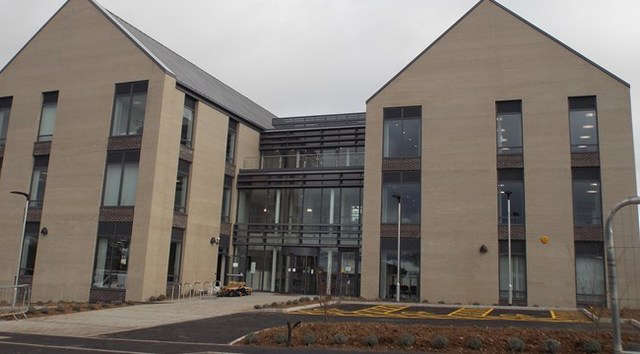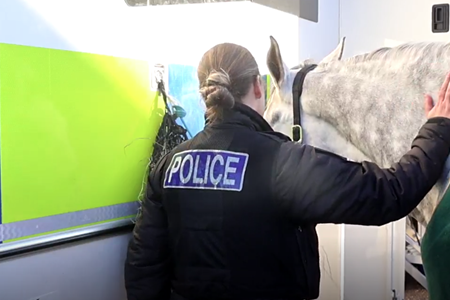
Devolution plans to reform local government have received mixed reactions in Devon. The government aims to streamline councils by merging areas with two tiers of local authority, which applies to Devon outside of Plymouth and Torbay.
Devolution plans which are set to shake up local government have met with a mixed reaction in Devon.
The government wants to streamline councils, merging areas where there are two tiers of local authority, which is the case in Devon outside Plymouth and Torbay.
Among reforms proposed in the Devolution White Paper aimed at transferring power out of Whitehall, the government is looking at having elected mayors covering large strategic areas which could see Devon and Cornwall combined.
The reorganisation may also see Devon’s eight district councils and unitary authorities in Torbay and Plymouth amalgamated into a smaller number of larger authorities of at least 500,000 people. As Devon’s population is around 1.2 million, that suggests a maximum of two local authorities in future.
In her speech announcing the plans, deputy prime minister and secretary of state for housing, communities and local government Angela Rayner said the white paper was “a turning point when we finally see communities, people and places across England begin to take back control over the things that matter to them.”
District council leaders in Devon have expressed support for devolution but some fear it is being rushed in, local democracy could suffer and thousands of jobs will be put in danger.
Cllr Paul Arnott, the Liberal Democrat leader of East Devon District Council said he understood what the government is trying to do but “it did not need to do it at this pace.”
He continued: “To be frank, along with inheritance tax for farmers and winter fuel payment cuts, they have now upset thousands of employees in district councils just before Christmas.”
Cllr Arnott said the idea that devolution would be expanded was talked about at the recent Local Government Association Conference in October but the notion of districts being abolished was not discussed.
“This wasn’t signalled at all, and we’re very well plugged in,” he added.
He said the move towards a system of mayors was “diminishing local democratic representation.
“My take on this is that the government, in the guise of increasing local democracy and pushing power down to the regions, is actually abolishing authorities that oversee the likes of 150,000 people – like East Devon – and forcing us into another authority that represents at least 500,000 people,” he said.
“And then, they want to force that unit into another set-up that represents at least 1.5 million people. That then has a mayor and they sit like knights of the round table around Kier Starmer as King Arthur.”
He added that it is an “unbelievable paradox” that the government plans to take away “really functioning democratic units” like East Devon District Council and replacing it with something much larger.
Cllr Arnott thinks pleading for Devon to be allowed to keep district councils because of the size of the county would “fall on deaf ears”.
He highlighted planning as a particular concern, fearing decisions could be taken in towns or cities miles away from where new buildings are constructed.
Liberal Democrat leader of South Hams District Council Julian Brazil said the government’s plans are the opposite of democracy.
“Local councillors are the fabric of local communities and local decision making and they want to get rid of that.
“This has not been well thought out, It has been rushed through and just chaotic.
“I’m a massive fan of devolution, but the government needs to let us get on with it. We have already started moving towards a Devon-wide waste contract and the South Hams and West Devon share resources and a leadership which has saved millions over the years.
“It’s evolution and we are doing it. The last thing this country needs is a local government reorganisation where we are told what to do by people who know nothing about local democracy.
“One of the most concerning things is that they are talking about cancelling local elections to get this done.”
Leader of the Labour-led Exeter City Council Phil Bialyk said he is talking with ministers to get an idea of what it could all mean for Exeter.
“We need to make sure we do the right thing in all of this and we won’t know that until the new year when we have more information,” he said.
Torbay Council’s Conservative leader David Thomas said it was important that authorities in Devon “swam with the current” and got on board with discussions at an early stage.
“We need to take advantage of the opportunities that arise,” he said. “This a chance to step up and be part of it or it will be done to us. We need to make sure we are on the front foot but there is no doubt there are going to be some difficult conversations to be had across Devon.”
Cllr Thomas said on the surface it looks as if the new plans are at odds with the combined county authority between Torbay and Devon, one of four new devolution deals approved by Labour, and planned under the last Conservative government, as the authority areas may have to change.
But he added: “The devo deal was always going to expand beyond the current boundary anyway so it’s all going in the right direction. We are connected to the process.”
Local areas will have to apply to the government to be part of the reorganisation programme; the first applications have to be in by Friday 10 January.
Cllr Tudor Evans, leader of unitary Plymouth City Council, said: “We welcome that after years of confusion about the benefits of devolution, the government has worked at pace to publish their plans.
“Whilst there is a lot to digest in the white paper, particularly around local government reorganisation, it does provide a once in a lifetime opportunity. Devolution is an exciting moment to elevate ourselves and give Plymouth, and the wider region, an opportunity to grow.
“It is on all local leaders to recognise the potential that devolution can bring – unlocking funding, resources and giving our region a bigger voice on the national stage.
“Clearly there is a long way to go on before the bill becomes law, but for now we need time to review the draft white paper and continue conversations with the government and our partners, including colleagues at Devon and Cornwall councils.”
Liberal Democrat MP for South Devon Caroline Voaden said creating larger regional authorities did not devolve power.
“It shifts power and responsibility away from local communities to a distant, higher-tier authority that will feel remote to towns and parishes in places such as Devon.”
In parliament this week she said that it is vital that next May’s local elections are not postponed, which has been mooted as a possibility, and happened in areas such as Somerset before it changed to a unitary authority.
“We must have the opportunity in May to pass our verdict on the Conservative-run Devon County Council, which has been failing our most vulnerable children for over a decade,” she said.
Independent leader of West Devon Borough Council Mandy Ewings said the plans will distract the authority from the work it is doing to deliver services.
“We are also being told to rewrite our local plan by the government, but how can we do that when we don’t know which areas we will be aligned with in the future or the number of houses we are meant to have.”
North Devon Liberal Democrat MP Ian Roome, who is also a district councillor said: “We want to see more regional powers for the south west and additional funding, but neither Devon nor Cornwall want a distant ‘super mayor’ that stretches across both counties.
“A mayoralty would likely take decision-making further away from communities, risks diverting funds away from essential services, and would put an extra precept on local residents.
He said many of the district councils in Devon had been delivering good results.

 Spotlight on Horse Road Safety: Sharing the Road, Staying Safe
Spotlight on Horse Road Safety: Sharing the Road, Staying Safe
 FIND WORLD BOOK DAY COSTUMES FOR FREE IN DEVON LIBRARIES
FIND WORLD BOOK DAY COSTUMES FOR FREE IN DEVON LIBRARIES
 Devon residents urged to Help shape the future of Devon’s libraries before consultation closes
Devon residents urged to Help shape the future of Devon’s libraries before consultation closes
 Appeal after phone theft scam, Torquay/Cranbrook
Appeal after phone theft scam, Torquay/Cranbrook












